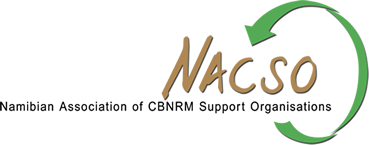
Good governance is the principle foundation upon which the CBNRM programme was established, and if it is not strengthened – and soon, the conservancy programme will just be a story. This was the tough message from Chris Weaver, Director of WWF in Namibia, at a workshop held on governance on 23 May, spearheaded by NACSO’s Institutional Development Working Group.
The workshop was attended by NACSO partners, including WWF Norway and WWF Sweden. The international presence underpinned the importance of the issue. According to some speakers, governance in most conservancies hasn’t improved very much over the years, despite a combined effort in supporting conservancies by stakeholders in the CBNRM programme.
The aim of the workshop was to discuss and agree on the combined overall project framework for the three collaborating partners: WWF Sweden, SIDA (Swedish International Development Cooperation Agency), and the MET with GIZ (German Technical Assistance). What indicators, baselines and targets would lead to the desired outcomes, the workshop asked? Activities for the projects and the terms of references to guide them were identified. Roles and responsibilities of the partners were clarified, as well as administrative procedures, and the reporting requirements and timelines.
The three projects, which have overlapping objectives, are the BAND project, the Leading the Change Programme, and the MET/GIZ project. The focal point of all the three projects is to strengthen governance in conservancies, and to ensure that benefits from natural resources are equitably shared among conservancy members. This will be done by raising awareness of conservancy members about their rights and responsibilities. In that way, ordinary members will be able to influence decisions on sustainable natural resource management in their area, and to ensure that power lies with members, and not only the conservancy committees.
The provision of technical support is critical, and this was a major theme of the workshop. To be able to deliver this, NGOs field partners need to be better equipped. The projects have made provisions to address this crucial element by supporting the trainings of trainers, which will ensure that activities are carried out efficiently at the local level. This will involve substantial collaboration between the MET, NGO field partners and the NACSO working groups, all of which were represented at a high level in the workshop, signalling strengthened cooperation and a move towards a more integrated approach.
At the end of the workshop, participants stated that they were satisfied, because the issue of governance and equitable benefit sharing are at the heart of the CBNRM programme. Addressing these two elements with renewed energy will have a huge positive impact on natural resource management, and the combined effort by all stakeholders in ensuring sustainable natural resource utilisation. To get governance back on track, a follow-up IDWG meeting has been scheduled for the 6th June 2018 to finalise the work plan, and the terms of reference for the working group coordinator.
